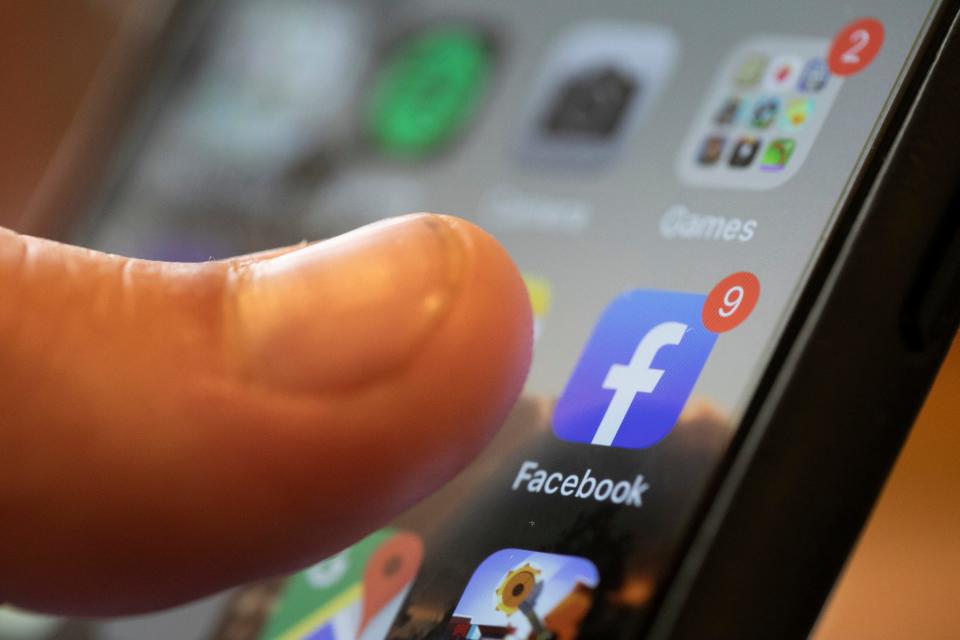Appeals court lets Texas enforce, for now, social media law sought by conservatives
A federal appeals court will let Texas enforce its new social media law — which targets Twitter, Facebook and other large platforms that Republicans accuse of censoring conservatives — even though the court has yet to rule on the law's constitutionality.
The one-sentence order by the 5th U.S. Circuit Court of Appeals, issued Wednesday evening, came with no explanation and was split 2-1, though the order did not indicate how the panel's three judges voted.
The law known as House Bill 20, approved largely along party lines by the Legislature last year, was blocked from taking effect in December by U.S. District Judge Robert Pitman of Austin.
Siding with two tech industry groups that challenged the law, Pitman said HB 20 was an unconstitutional violation of social media companies' free speech rights — interfering with the platforms' editorial discretion and their First Amendment right to moderate the third-party content they disseminate.

"HB 20 prohibits virtually all content moderation, the very tool that social media platforms employ to make their platforms safe, useful, and enjoyable for users," Pitman wrote.
Wednesday's order came only two days after the appeals court heard oral arguments in which Texas lawyers defended HB 20 as a legitimate effort to ban platforms from censoring certain viewpoints.
Texas argues that the large platforms are "common carrier" public forums, subjecting them to state regulation to ensure free and unobstructed access without fear of viewpoint discrimination.
'Big win against Big Tech'
Ken Paxton, the state's Republican attorney general, called the ruling a "big win against Big Tech."
"Texas's HB 20 is back in effect," Paxton wrote on Twitter. "The 5th Circuit made the right call here, and I look forward to continuing to defend the constitutionality of HB 20."
The Texas law lets users sue if they are blocked from posting on a large platform or if their posts are removed.
Tech industry groups argued that HB 20 would open social media platforms to countless lawsuits, upending their ability to enforce content moderation policies and protect users from abusive posts, scams or falsehoods.
Carl Szabo, vice president and general counsel of NetChoice, which challenged the Texas law, said the industry group plans to immediately appeal the order, which he called "an unusual and unfortunate move" because it was issued without explanation or addressing the law's merits.
'Assault on the First Amendment'
“HB 20 is an assault on the First Amendment, and we remain confident the courts will strike it down as unconstitutional,” Szabo said. "In the meantime, unfortunately, Americans — especially Texans — will be negatively impacted.”
In blocking the state law last year, Pitman said social media companies were improperly burdened by provisions that require platforms to create a system that lets users track complaints and receive an assessment of the legality of removed content within two days, excluding weekends. HB 20 also creates burdens by requiring large platforms to notify users every time a post is removed and provide an opportunity to appeal — with 14 days to give users a written explanation about the decision, the judge said.
The requirements, Pitman said, "are inordinately burdensome given the unfathomably large numbers of posts on these sites and apps."
Pitman also noted that the law applies only to social media companies with at least 50 million users a month, allowing HB 20 to target platforms that Republicans accuse of bias while exempting Parler, Gab and other sites popular with conservatives.
Trump's social media accounts
Abbott spokeswoman Renae Eze said the governor made HB 20 a priority during special sessions of the Legislature last year "because allowing biased social media companies to cancel conservative speakers erodes America's free speech foundations."
"We fully expect social media companies to comply with this Texas law, and if they refuse and attempt to cancel conservative speech, the attorney general’s office will hold them accountable to Texans and the Lone Star State," Eze said.
HB 20 was fueled by conservative anger that coalesced after Twitter banned former President Donald Trump's account, citing the risk of further violence after the Jan. 6, 2021, attack on the U.S. Capitol, while Facebook and Instagram suspended Trump accounts for similar reasons.
"The Big Tech oligarchs will never forgive themselves for not more tightly controlling political speech online, which they blame for the defeat of Hillary Clinton at the hands of Donald Trump," said Jim Lakely, vice president of the conservative Heartland Institute.
"We now live in a world in which a handful of powerful people who control the digital town square allow one side of the political spectrum — the left side — to speak as they wish, and suppress the speech of conservatives," he said.
But social media companies say their content moderation policies offer essential protections for users, and Scott Wilkens, senior staff attorney for the Knight First Amendment Institute, said the ruling will have dire consequences for online speech.
"Texas’s law violates the First Amendment because it compels social media companies to publish speech they don’t want to publish," Wilkens said, adding that the legal theories pushed by lawyers for Texas would "give government broad power to censor and distort public discourse."
The three members of the 5th Circuit panel that lifted Pitman's injunction against HB 20 were all appointed by Republican presidents — Judges Edith Jones by Ronald Reagan, Leslie Southwick by George W. Bush, and Andrew Oldham by Trump. Wednesday's order indicated, in a footnote, that the panel was split on its ruling but included no other information.
A court order blocking a somewhat similar law in Florida is on appeal in a different circuit court but remains in effect.
This article originally appeared on Austin American-Statesman: 5th Circuit Court lets Texas enforce, for now, social media law

